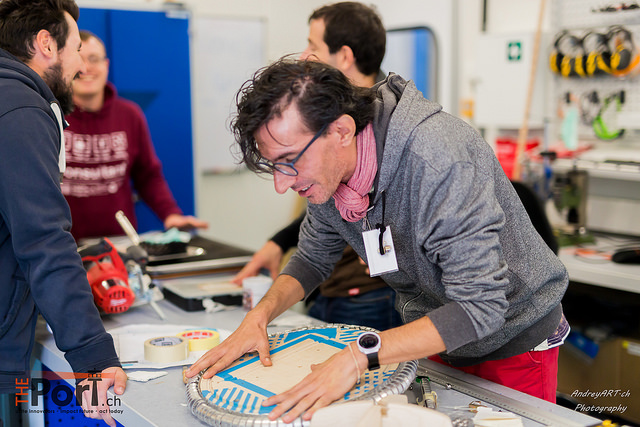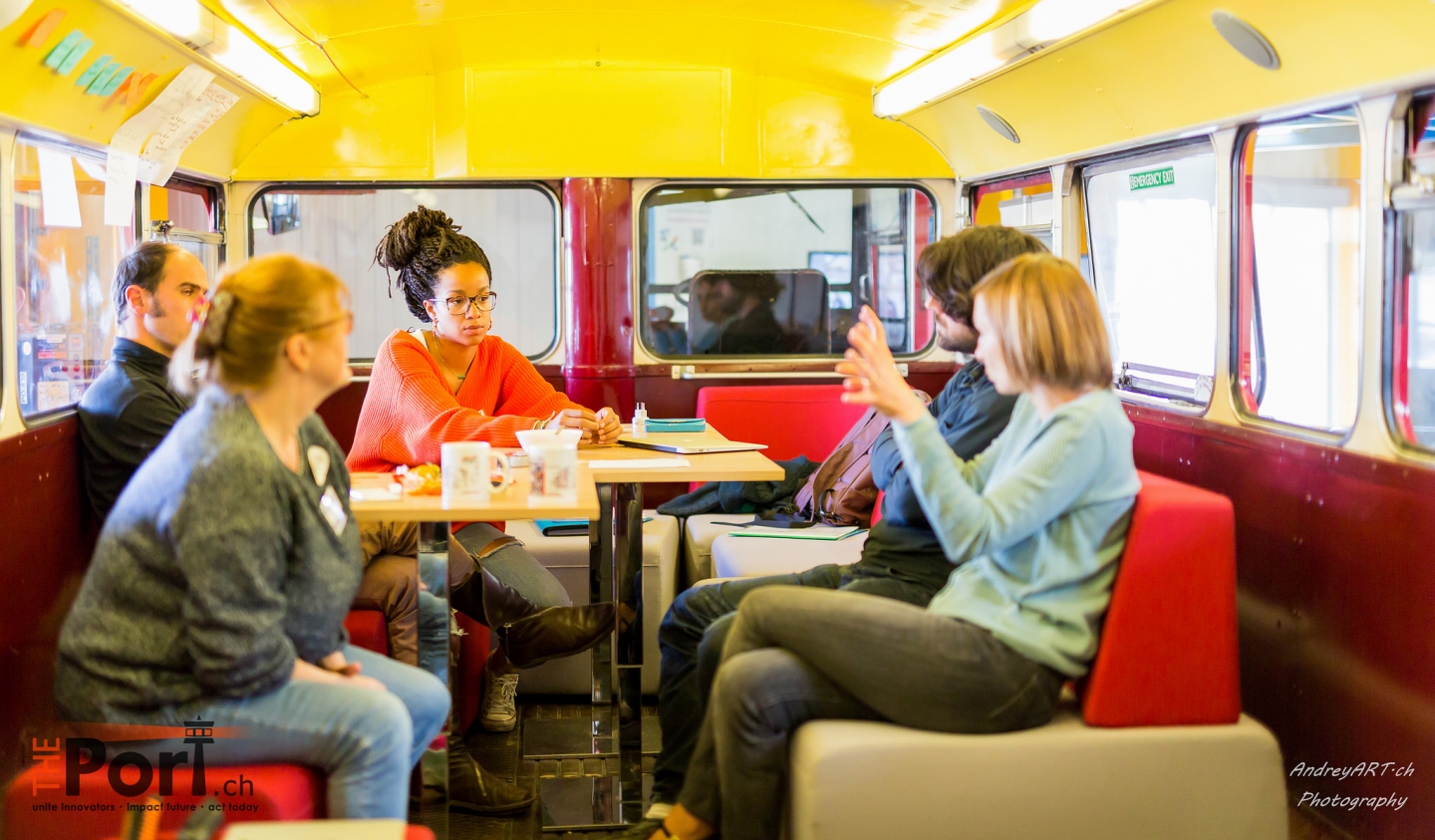From 6 to 8 October, THE Port Association held the fourth edition of the Humanitarian Hackathon at CERN’s IdeaSquare. This year, 64 participants, 12 mentors and 10 coaches from THE Port gathered together to tackle five humanitarian-related challenges.
After a two-month phase of preparation by videoconference and a 60-hour productive sprint, the teams created six prototypes and proofs of concept, which were presented in CERN’s Globe of Science and Innovation in front of a local and international audience.
The teams created a wearable device monitoring the evolution of Parkinson’s disease symptoms for research purposes, a cheap, ready-to-use and sonified wobble board designed for use by lower-limb amputees’ performing their own physiotherapy, and a decentralised open network for better communication between non-profit governmental organisations.
Three smartphone applications were also developed: the first is able to make an enhanced age assessment of migrant children, the second is connected to a smart recycling bin with a recognition and reward system, aiming to promote environmental education and to improve the conditions in refugee camps, and the third is able to assess what is needed to achieve renewable electrification in remote rural communities.

The participants were an intercultural and interdisciplinary blend of humanitarians, scientists, engineers, computer scientists, students, entrepreneurs and communicators. In total, 40 nationalities were represented, with people coming from as far as Kenya, Martinique, India, Taiwan and the USA to take part in the Humanitarian Hackathon.
Now that this first step in THE Port’s mission has been successfully accomplished, it is time to bring those projects further towards implementation in the field. To do so, THE Port will continue supporting the teams by facilitating contact within its networks and community, by organising key meetings and contextual side-events and by supporting their communication efforts.
If you are interested in supporting or participating in one of the above-mentioned projects, contact THE Port at info@theport.ch.
A recording of the final presentation can be found at https://cdsweb.cern.ch/record/2288117.

